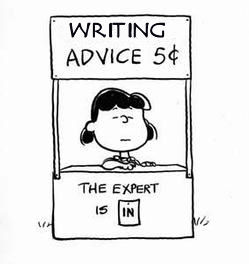@kit_flowerstorm on Twitter asks me to discuss how to practice the discipline of writing.
This is a question I get a *lot*. I don’t know if all professional writers get it a lot or if I do because I seem to have a particularly impressive output (or if it’s just that, as I actually *noticed* a few weeks ago, I work a lot).
There is not a romantic answer to this question. The truth is that when writing is your day job, you sit down and (if necessary) struggle for the words just like you might go to a more typical job and struggle through the day, regardless of how much you might not want to. It’s what pays the bills, so it’s what you do.
Furthermore, you know what it takes. It takes sitting down and writing. It takes getting your butt in the chair and your writing instrument to hand and doing it. There’s no romanticism to that either. It takes screwing up more times than you can count and frustration beyond compare and aggravation and polishing and trying to do better, but at the end of the day nothing’s going to come of it if you do not sit down and write.
Those things, however true, are also perhaps not necessarily a very useful answer. This, though, might be:
First, you have to want to write more than you want to do anything else. *Anything* else. You have to want to write more than you want to hang out with your friends. More than you want to sleep, because you can get up an hour early or stay up an hour late and get in a little writing time. More than you want to go to lunch with your coworkers, because you can steal 30, maybe 45 minutes of writing time if you eat a home-made lunch and hide in a corner for the rest of lunch hour and write. More than you want to watch TV or go to the movies; I have a friend who says if you have time to watch TV, you have time to write, and she is absolutely correct.
It’d be good if you don’t want to write more than you want to exercise, because exercising is really good for you and helps clear your head and can make writing easier. So try not to want to write more than you want to exercise, but really, you’ll probably want to write more than you want to exercise.
You have to accept that if you want to write professionally, you’re going to have to treat your writing like it’s a job. It’s not a hobby. It’s a job. It’s almost certainly a job you’re not getting paid for, and if you’re a typical writer, you won’t get paid for it for a long time. I wrote five full length manuscripts and at least two massive partials over the course of a decade before I got a contract. This is pretty normal. You have to be somewhat obsessed to pursue something like that for so long, at the expense of things listed above and things like the things listed above, for so little reward. For possibly *no* reward, because getting published is hard.
But if it’s what you want, if it’s what you really truly desperately deeply want, you will find the discipline to do it. You’ll skip lunches out, you won’t watch tv, you’ll choose to write for another half hour instead of going to the gym (don’t do that, go the gym), you’ll forego sleep in the name of a few more words on the page.
All of this is vastly more difficult if you have a child. If you’re the primary caregiver to a child and you’re trying to write and you find even five minutes to get some words on a page, you are hugely admirable and should be proud of yourself.
You will not always want to write more than you want to do anything else. That need will come and go. You can beat yourself up for it if you want, but honestly it’s better if you try not to. If the real, deep, frustrating desire to write is there, you’ll go back to it after a while. Maybe after a month. Maybe after a year. Maybe after five years. If you don’t feel the pull to go back to it, don’t worry about it. It’ll be okay.
If you do feel the pull, you’re probably a hopeless case, under which circumstances I can tell you that deadlines are possibly the most useful discipline-keeper that I know. I do not believe in the Douglas Adams school of deadlines; I do not enjoy the sound of them whooshing past over my head. Writing groups can be helpful for that, if you’re not good at setting and keeping your own deadlines.
Daily wordcount expectations can be helpful, even if it’s just 100 words. Don’t be overly ambitious with wordcount goals. It’s much, much better to have a tiny goal and over-reach it than a big one you have a hard time reaching and missing a day of which will put you so far behind you give up forever (or at least weeks).
Exercise helps. I swear to God, it really does. Whatever kind works for you, going for a walk, going to the gym, swimming, yoga, whatever. Moving a little bit loosens up everything, including your mind, and it can make it easier to get those words on the page.
But ultimately, y’know, you’ve just got to sit your butt down and do it. I really don’t know any other way.
